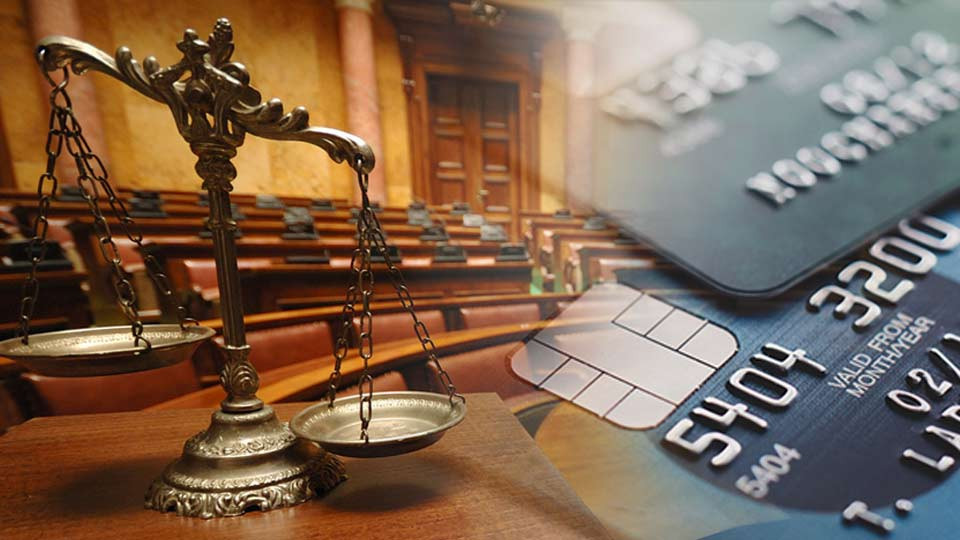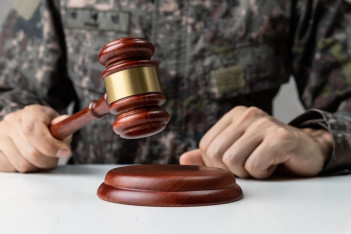I am Mariya Borevich, your personal lawyer. My primary goal is to help clients find optimal solutions to current legal issues, ensuring reliable protection of their interests. I specialize in family, civil, and military law, which allows me to effectively handle a variety of situations and cases. In family law, I provide support in resolving issues related to divorce, property division, establishing and challenging parental rights, alimony, and child custody. I understand that these matters are often emotionally complex, so I always strive to find the most delicate and fair solutions for all parties involved. In civil law, I assist in settling disputes related to contracts, property rights, compensation for damages, inheritance, and other issues concerning the protection of personal and property interests. Special attention is given to military law — supporting servicemen, protecting their rights and interests related to military service, social guarantees, and legal disputes. This area requires deep knowledge and understanding of the specifics of military service and the legislation regulating it.
Enforcement proceedings are the legal process of enforcing decisions of courts or other bodies that have entered into force. It is opened if the debtor voluntarily failed to fulfill an obligation imposed by a court decision or an administrative act, for example, did not pay a fine, debt, alimony or other obligations.
The main stages of executive proceedings:
- Opening of enforcement proceedings: begins with the submission of an application by the debt collector (the person or body in whose favor the decision was issued) to the State Enforcement Service (SES) or to a private executor. The executor issues a decision on the initiation of proceedings, which he sends to the debtor with the requirement to voluntarily comply with the decision within a specified period (usually 7-10 days).
- Voluntary execution: the debtor has the right to voluntarily execute the decision within the specified time. If this is done, the enforcement proceedings are closed without further consequences.
- Coercive measures: if the debt is not repaid on time, the executor proceeds to coercive measures, such as: seizure of the debtor's property or accounts, collection of funds from wages or other income, restrictions on travel abroad, sale of the debtor's property at auction.
- Closure of enforcement proceedings: the proceedings are closed after full performance of the obligation or in the case of other circumstances provided for by law (for example, if the debt is written off due to the expiration of the statute of limitations or the collection decision is canceled).
Question
What are the rights and obligations of the parties in enforcement proceedings?
Answer
The debt collector has the right to monitor the actions of the executor, challenge his inaction and demand a report. The debtor has the right to appeal the actions of the executor and enjoys protection against abuse, but is obliged to comply with the decision and cooperate with the executor. Enforcement proceedings allow enforcement of decisions of courts and state bodies, but also provide rights for the protection of both parties.
Enforcement proceedings for failure to appear before the TCC and SP (Military Commissariat) may be opened if an administrative fine has been imposed for this offense and it has not been paid voluntarily within the time specified by law.
When and how enforcement proceedings are opened for non-appearance:
- Imposing a fine and reporting it: if you did not appear before the TCC without a valid reason, an administrative fine is imposed for this on the basis of Article 210-1 of the Code of Ukraine on Administrative Offenses. After the imposition of a fine, the TCC forwards the decision on the imposition of a fine to the executive service, if it is not paid within the prescribed period (usually 15 days from the moment of receipt of the decision).
- Opening of enforcement proceedings: if the fine is not paid on time, the case is transferred to the State Enforcement Service. The Internal Revenue Service opens executive proceedings for the compulsory collection of a fine. The executor sends a decision on the opening of enforcement proceedings to the debtor, which specifies the terms for voluntary performance and the amount of the debt with possible additional enforcement fees.
- Consequences of opening executive proceedings: seizure of bank accounts or property of the debtor. Restrictions on travel abroad and other sanctions provided for by executive proceedings are possible.
Question
How to avoid the opening of executive proceedings?
Answer
In the case of receiving a decision on a fine, it is recommended to pay it within the specified time frame, or appeal in court if you consider it unlawful. If the fine has been paid, notify the appropriate authority to avoid further enforcement action. If necessary, the lawyer can help with the appeal of the decision on the fine or the suspension of the enforcement proceedings, if it was opened illegally.
If the TCC and SP imposed a fine for non-appearance, and it was transferred to the enforcement service, then the enforcement proceedings may be opened for enforcement. To find out about open executive proceedings, you can use the following methods:
- Check on the official website of the Unified Register of Debtors: go to the website of the Unified Register of Debtors, enter your data (VIN or surname and first name) to check the presence of a record. If enforcement proceedings were opened, the register will contain information about its number, the amount owed, and other data.
- Check on the website of the Automated System of Executive Procedures (ASVP): go to the website of the Automated Enforcement Procedures (ASVP). Enter your personal data or the number of the executive proceeding, if you know it. The system will provide information about the status of the proceedings, the executor and possible actions to settle the debt.
- Addressing the Department of the State Executive Service: you can contact the Department of the State Executive Service at your place of residence in person. Ask for information about the possible proceedings, having an identity document with you.
- Official notice from the executor: after the opening of enforcement proceedings, the state bailiff is obliged to send the decision on the opening of enforcement proceedings to the address of the debtor. The resolution specifies requirements, deadlines for voluntary payment and other details of the proceedings.
If you found an executive proceeding:
Pay the fine: If the fine is not paid, the enforcement officer can impose additional penalties or seize the property.
Appeal or settlement: If you think the fine was wrongly imposed, contact a lawyer to appeal.
Consult a lawyer: legal assistance can be useful to properly assess the situation and consider the possibilities of appealing the enforcement proceedings or the fine.
The services of a military lawyer of the legal marketplace "Consultant" for the protection of interests can be useful if TCC and JV fines have been imposed, as well as in the case of opening executive proceedings to collect such fines.
The main services offered by the legal service "Consultant":
- Analysis of the legality of the fine and preparation for the defense: verification of the legality of the imposition of the fine, in particular the analysis of the circumstances of the summons to the TCC and possible violations. Consultations on valid reasons for absenteeism and documentary evidence of these reasons.
- Appealing the fine: preparing and submitting a complaint to the court about the decision on the imposition of a fine, if there are grounds to consider it unlawful. Representation in court to defend your rights and cancel the fine if the fine was imposed illegally.
- Legal support in executive proceedings: verification of the existence of executive proceedings and control over its progress. Preparation of documents for postponement or deferral of payment, in case of confirmation of justified financial difficulties or other reasons. Protection from seizure of property and other coercive measures that may be used by the executor to collect the debt.
- Consultations and coordination regarding TCC and SP fines: clarification on the procedure for summons to the TCC, the rights and obligations of the person, as well as the circumstances that are considered valid for non-appearance. Advice on prevention of repeated fines and assistance in interaction with TCCs and SPs for proper compliance to avoid fines in the future.
Protecting your interests with the help of a military lawyer allows you not only to correctly draw up all the documents and protect your rights, but also to minimize the risk of additional sanctions or an increase in debt. A lawyer will help assess the reasonableness of the fine, help appeal executive actions or represent your interests in court if you think the fine is unlawful. A lawyer or enforcement attorney will also help find opportunities to close or stop the proceedings if it turns out that the fine was imposed in violation.




































